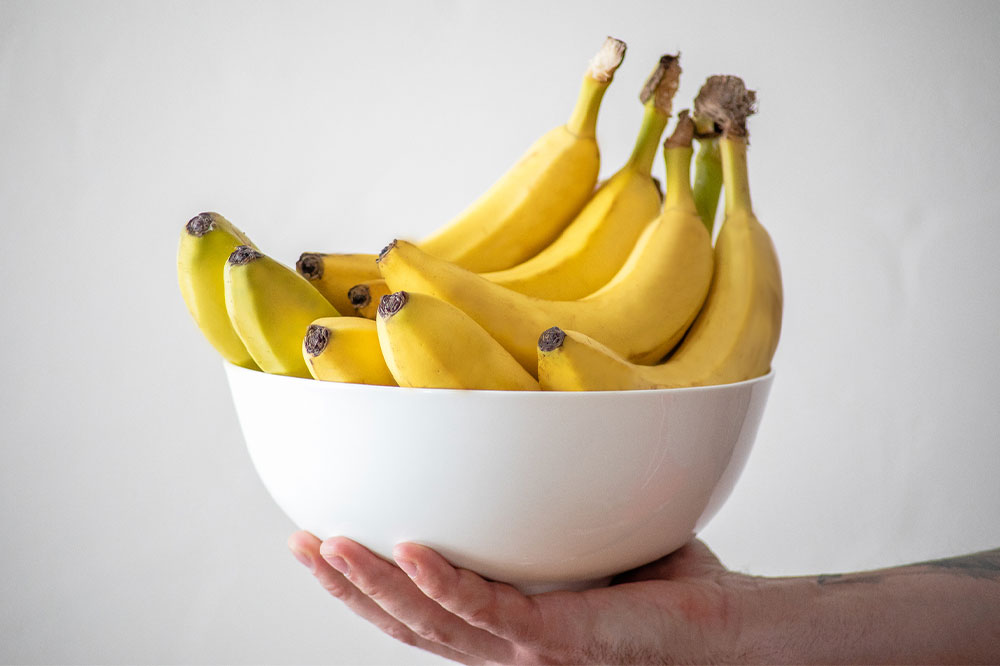6 foods that can help manage Parkinson’s disease symptoms

Parkinson’s disease is closely associated with low levels of dopamine in the brain. While there is no recommended nutritional plan for the disease, researchers have found that eating certain foods can provide relief from symptoms of Parkinson’s disease. Following is a list of six foods that are effective in treating Parkinson’s disease symptoms. Make sure to check with the doctor before incorporating these foods into daily meals. Read on to know more.
Bananas
Bananas contain levodopa, a dopamine replacement agent used in the clinical treatment of Parkinson’s disease. Bananas are high in healthy fiber, which keeps you full for a long time, avoiding binging on unhealthy foods that can increase the risk of worsening the disease. Fava beans also contain levodopa.
Berries
Berries such as blueberries, blackberries, goji berries, cranberries, and elderberries are among the best fruits for people with Parkinson’s disease as they contain high levels of antioxidants. Researchers say that foods high in antioxidants can reduce oxidative stress in your brain. Oxidative stress is known to aggravate Parkinson’s disease.
Broccoli
Broccoli is a leafy green vegetable that contains high amounts of antioxidants, making it an important food for fighting Parkinson’s disease. Antioxidants can help fight free radicals, which are molecules produced by the body that damage nerve cells. Antioxidants can also promote the healing of cells, so they are one of the best compounds to look for in food when battling a progressive disease like Parkinson’s.
Fish
Fatty fish such as mackerel, salmon, sardines, trout, herring, tuna, and anchovies are rich in Omega-3 fatty acids that can possibly improve cognitive impairment associated with Parkinson’s disease. Moreover, the anti-inflammatory property of omega-3s can also help reduce the amount of inflammation in the nervous tissues.
Green tea
Green tea can help slow the development of Parkinson’s disease and other diseases that cause degeneration of the nervous system. Plus, green tea is high in antioxidants. However, research is still underway to understand its exact mechanism in fighting Parkinson’s disease.
Nuts
Nuts such as walnuts, cashews, and pistachios, among others, are filled with nutrients that help rebuild neural connections. This helps in protecting the brain cells from Parkinson’s disease. Nuts such as Cashews and almonds help protect against memory loss, making them essential foods for older adults as they stand a greater risk of developing this disease.
While these foods can help reduce the risk of developing or worsening Parkinson’s disease, there are treatment options to effectively manage the same. For instance, Ongentys®, Carbidopa, and Rytary® are some prescription medicines for managing Parkinson’s disease. All these treatments are based on managing levodopa levels in the brain. Make sure to talk about the side effects associated with these medicines to avoid the aggravation of any other underlying conditions.